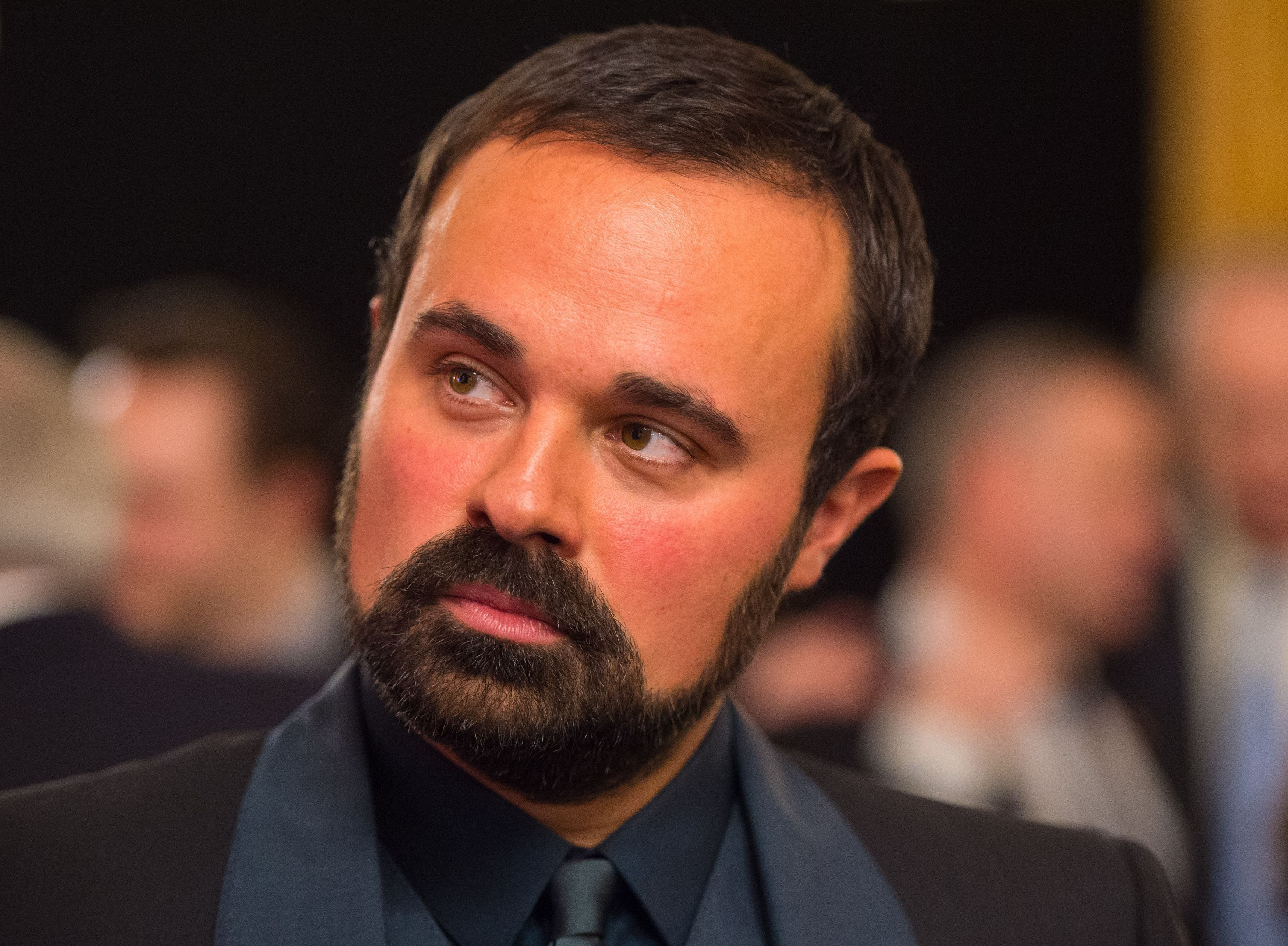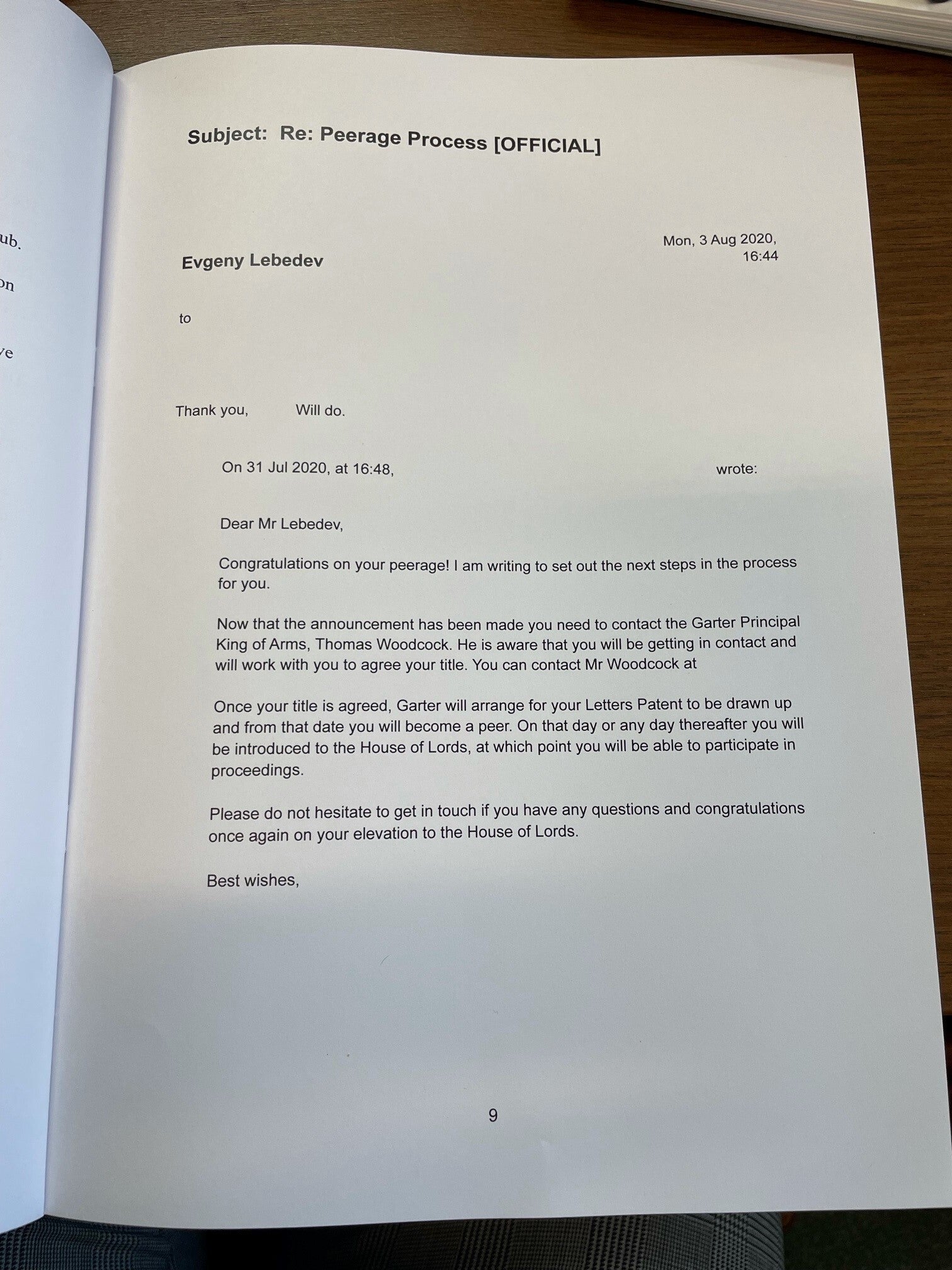
Parliament’s intelligence watchdog is scrutinising Evgeny Lebedev’s appointment to the House of Lords, it has emerged, as the Government was accused of a “cover-up” by withholding detailed security advice over the Russian-born businessman.
The Intelligence and Security Committee (ISC) rebuked Cabinet Office minister Michael Ellis for revealing its “classified” request for information relating to the peerage for the son of a former KGB agent.
Mr Ellis disclosed the request as he announced he would withhold publishing the full extent of the documents ordered by the Commons as he cited the need to “protect national security” and to maintain the “integrity” of the honours system.
Deputy Labour leader Angela Rayner told Boris Johnson to “come clean” if he has nothing to hide as she vowed to fight “this contempt of Parliament”.

The appointment has been shrouded in controversy after the Sunday Times alleged security services withdrew an assessment that granting the peerage posed a national security risk after the Prime Minister intervened.
Lord Lebedev, the owner of the London Evening Standard and a shareholder in The Independent, and son of oligarch Alexander Lebedev, was appointed to the House of Lords in November 2020.
The House of Commons approved a Labour motion in March seeking to force the Government to release documents about Mr Johnson’s involvement.
But on Thursday ministers simply released the blank form Lord Lebedev was required to fill in by the House of Lords Appointments Commission, the public citation announcing his appointment.
They also published a list of the other peerages awarded at the same time, and a couple of email exchanges with almost all content redacted apart from a note congratulating him on the news.
Ms Rayner said: “This looks like a cover-up and smells like a cover-up because it is a cover-up.
“The public have a right to know the truth about Boris Johnson’s interference in the appointment of his friend Lord Lebedev, the son and business partner of an ex-KGB agent, to a seat in the heart of our Parliament. It is time to get to the bottom of this whole murky business.”
Mr Ellis said in a statement that the Government was “committed to openness and transparency” but it had to take into account security concerns as well as the need to maintain the “integrity” of the honours system.
“It is also the case that when considering requests for information from Parliament, the Government has a responsibility to consider whether it is in the public interest to place information into the public domain,” he said.
“As laid out in today’s House of Commons paper, the disclosure of these documents reflects the need to protect national security, to maintain integrity in the system for the awarding of honours and dignities by the Crown, the vetting of nominees for probity and the data protection rights of individuals.”

Mr Ellis said that in response to a separate request, the Government would be sending information relating to “any national security matters arising” to the ISC, which normally sits in private.
“Lord Lebedev is a man of good standing. No complaint has been made about his personal conduct. He has been vocal in his criticism of the Putin regime,” he added.
However, the ISC released a statement to say it had made its request for more information “on a classified basis”.
The committee said it was too soon to determine whether the information received is “sufficient” having only received it on Wednesday, despite having set an April 28 deadline to align with one set by the Commons.
“So far as the ISC is concerned, at this stage our request for information should have remained a private – and classified – matter of oversight,” the statement added.
Labour has previously called for an ISC investigation into the appointment.
Downing Street sought to defend withholding the security advice.
A No 10 spokesman said: “It’s our responsibility to protect the integrity of the vetting process which is voluntarily entered into on a confidential basis.
“We are committed to transparency but the disclosure we’ve made reflects the need to maintain the integrity of the system.”





